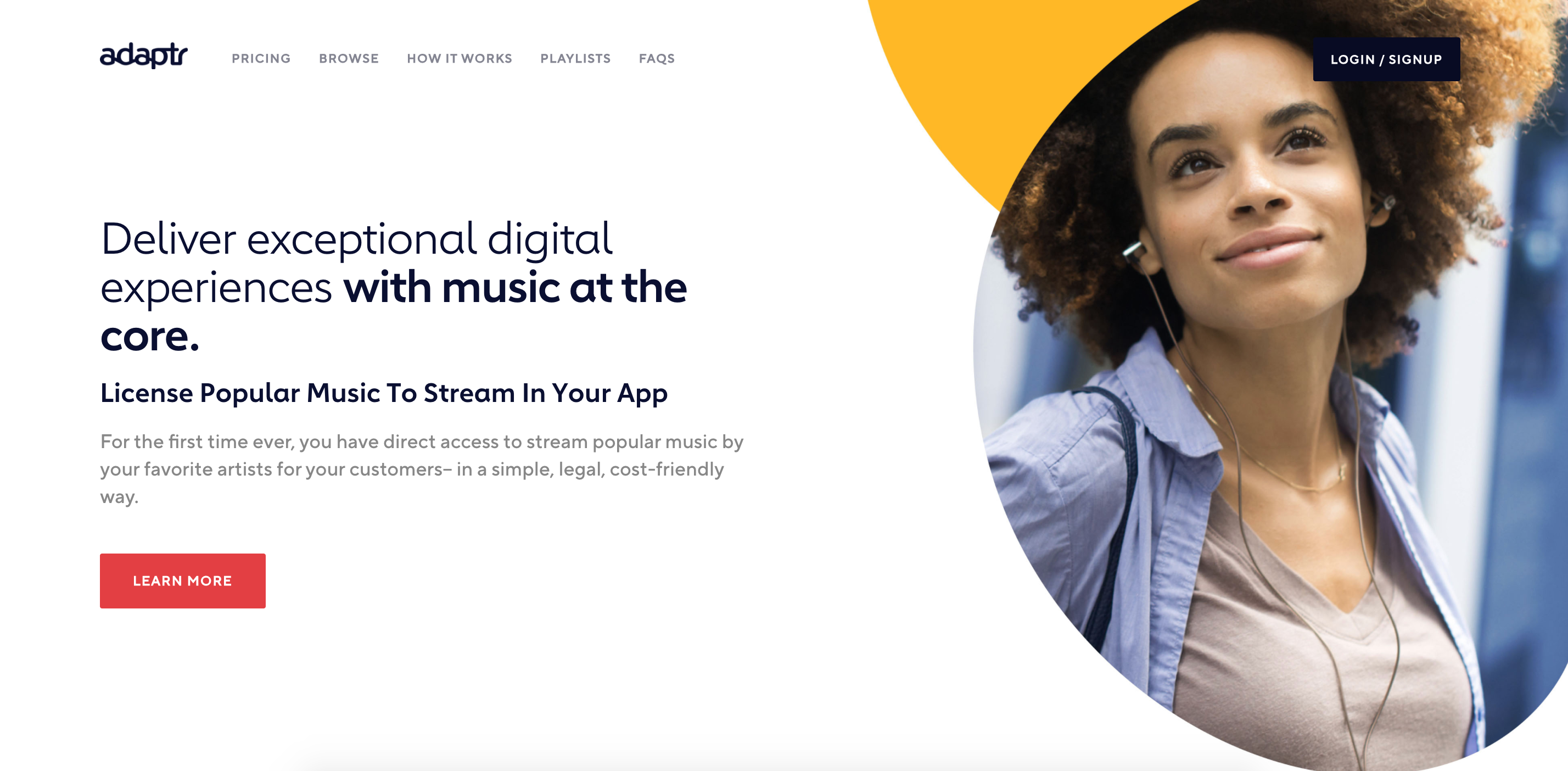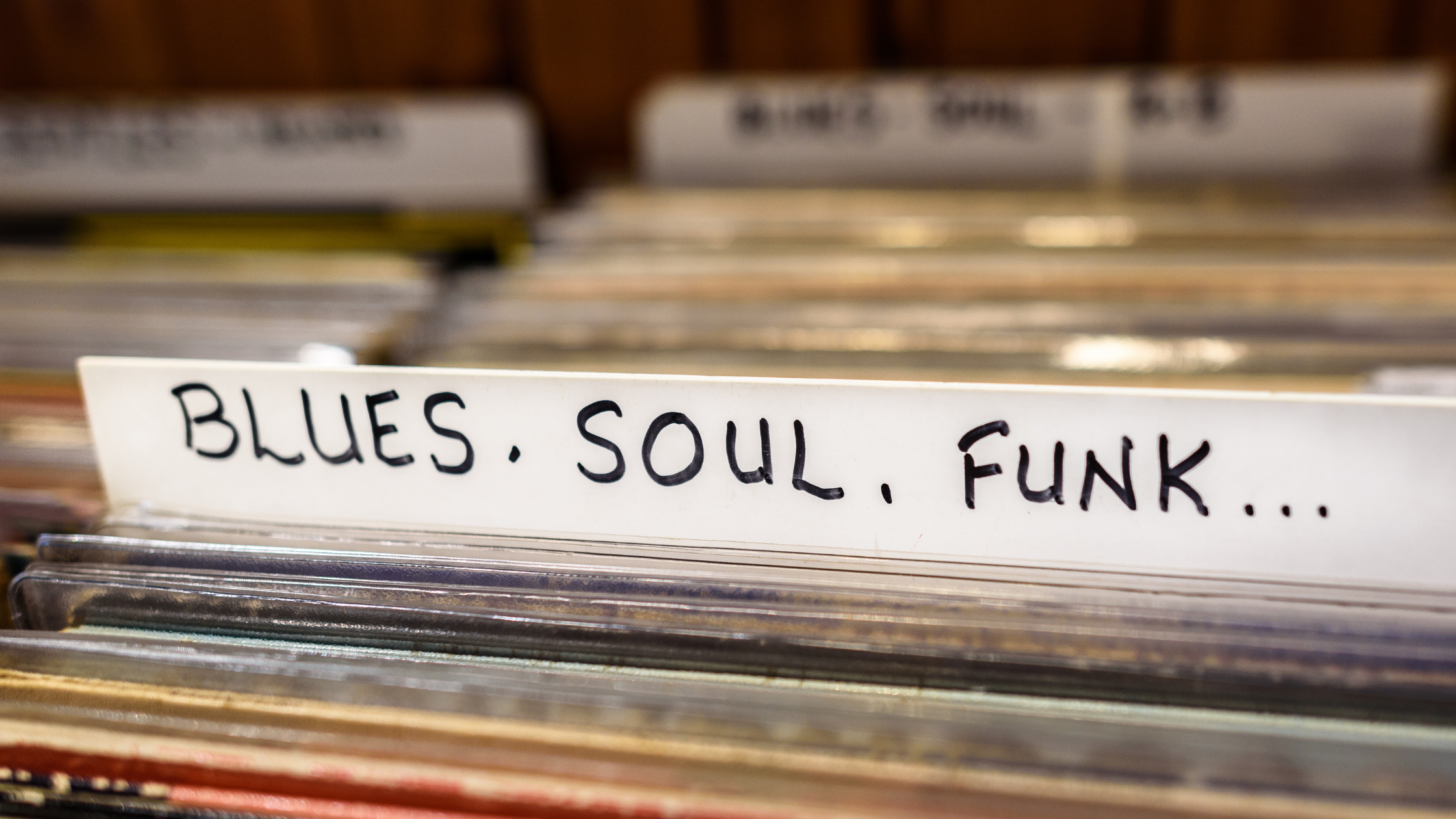October 4, 2022
Why innovation needs music.
Fueled by imagination, music is very much a lodestone of creativity. It transforms people, changes how they think, feel, and act. It expands boundaries and informs worlds. This is why music is so central to humanizing technology. From AR and VR experiences that take immersive gaming in new directions, to wellness apps that harness the therapeutic potential of music, or to social apps that connect people via shared sonic affections, music is central to a dizzying array of technological innovations.
Often, though, digital entrepreneurs—who constantly push beyond the possible to create new realities—must first confront the limitations of what exists.
Traditionally, the process of licensing music for apps and digital experiences is one such limitation. It is complex, time-consuming, and can be quite expensive. Obtaining the rights to use licensed music—quality music, songs from artists known to customers, thrillingly immersive—has historically been a long, drawn-out process that must be endured before a business can start incorporating said music into their products and experiences.
Adaptr teams up with accelerators—who support and mentor startups to speed their time to market—to help innovators license and use music
Startups most often aren’t going to be fully versed in the music licensing landscape. Adaptr teams up with accelerators—who support and mentor startups to speed their time to market—to help innovators license and use music effectively, efficiently, and with minimum frustration.
Understanding the Entrepreneur
Startups and growth-stage businesses typically have goals as big as their innovative ideas and ambitions, but it takes a lot to transform an idea into something real, unique, and differentiating. Young businesses don’t always have a lot to work with early on. It is what makes the support and mentorship provided by accelerators incredibly important. Every minute counts, every person counts, and every dollar counts. Thus, significant strategic, developmental, and operational decisions are often framed around these key inputs:
- Time — As in, how long will this take
- Resources — What will be required to get this done
- Budget - How much money will this cost
And, of course, what is the return? How will every investment of time, resources, and money accelerate a business further into its journey, enabling it to get in market faster, acquire more customers, scale the business, and generate long-lasting, constantly growing loyalty and revenue?
Understanding Music Licensing for Businesses
So why is music licensing a major pain point for a young business with innovative ideas? Well, to begin with, it has several layers, combining a variety of rights and entities that must be accounted for. For example,
- A Sync License grants the right to combine music with video into an audiovisual work (as is the case for mobile games and other apps and digital experiences)
- A Master License grants the right to use the song as it was originally recorded
- A Performance License grants the right to perform the underlying musical composition or the recording of the composition publicly
- A Mechanical License grants the right to copy and distribute the underlying musical composition for use on an album, CD, cassette, or other medium that will be sold or otherwise distributed to an audience
Got that? It can be complicated. Now, layer in the fact that each of these licenses may be controlled by separate entities.
- Sync licenses are typically controlled by the song’s composer or publisher
- Master licenses are typically controlled by the major labels and indie labels that recorded the artist’s music
- Performance licenses are controlled by Performance Rights Organizations (ASCAP, BMI, SESAC, and SoundExchange) who also collect and distribute royalty payments to labels and composers
So not only do entrepreneurs have to figure out which combination of licenses they need, but they also have to figure out which combination of entities they must get the licenses from.
Still with me? Excellent. Because, unfortunately, there’s still more.
- A license doesn’t typically come at a flat fee, because what a business pays is based on how many times it uses the song or the revenues derived from that use.
- A business must repeat the process for each song it uses, and, from song to song, there’s a good chance they’ll be dealing with different publishers, different labels, and different PROs, and you’ll have to negotiate licensing with each rightsholder individually.
- Finally, once a business has acquired all the appropriate licenses from all the appropriate rightsholders for all the songs it uses, each month, it has to track how many times each song has been played, ensure it has been used in compliance with each license, and distribute the correct payment amounts to the appropriate rightsholders.
It can all be a bit overwhelming. As I mentioned before, three of a young business’s most precious resources are time, resources, and money, and the licensing process strains all three of them to the limit.
Some businesses make up for this by using generic production music, which is almost always more anodyne and less engaging than popular music familiar to customers, negatively affecting the app’s popularity, use, and retention. Another gambit some businesses undertake is to just use the music they want, without obtaining the correct licenses. This may be tempting, but it is illegal, and, eventually, rightsholders will notice. At which point lawyers, court, fines, and even the possibility of jail come into play. Not so great after all.
Partnering With Adaptr
Adaptr has innovation hardcoded into its DNA. We looked at the process and pain points of licensing music and knew there had to be a better way. So we did what innovators do. We looked beyond what was real to see that something new was possible, and then we made it real.
At Adaptr, we have relationships with the major labels, indie labels, publishers, and PROs. Working with them, we have developed the largest catalog of trending songs, top hits, genre classics, and other music for business use in the US (over 600,000 songs, and growing). We’ve negotiated and pre-cleared everything, at rates affordable to startups and growth-stage businesses. All a young business has to do is
- Find the songs you want to use in our catalog (there are no “per song” fees, so use as many different songs as needed to create a more flexible, personalized experience for your end users)
- Connect those songs to your app via our easy-to-integrate API and SDKs (like, “launch in as little as a day” easy)
- Stream the music in your apps
- Pay Adaptr for the streams used
In short? Adaptr is a one-stop-shop solution to doing it all. We have the right music for an engaging customer experience, pre-cleared and legally licensed, easily integrated, and with all analytics and royalty payments distributed by us.
Digital innovation is about seeing beyond “what is” to make “what can be” a reality. As the late jazz musician and Afro-futurist philosopher Sun Ra put it:
Reality has touched against myth
Humanity can move to achieve the impossible
Because when you've achieved one impossible others
Come together to be with their brother, the first impossible
Adaptr’s innovative solution has taken what used to be extraordinarily complicated and collapsed it into a simple, hassle-free solution. And, in doing so, we empower entrepreneurs to touch reality against myth and achieve the previously impossible.
Now, startups and the accelerators that guide them can skip the complicated parts and start using Adaptr to get sonically visionary digital experiences out of beta and into app stores.





